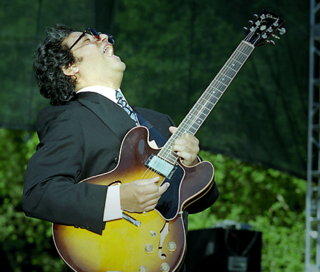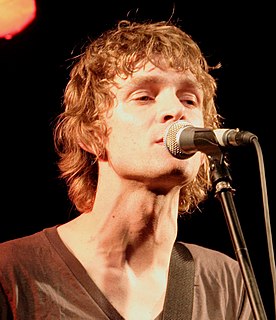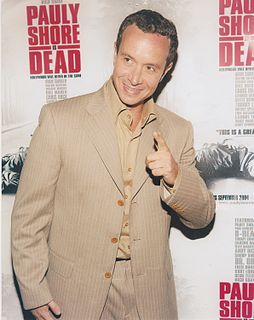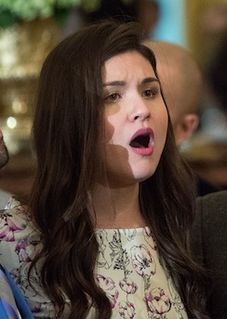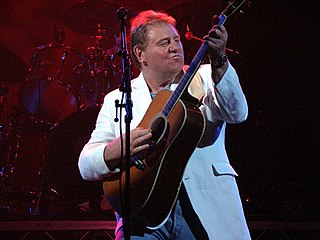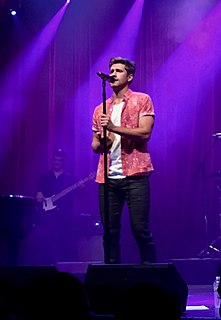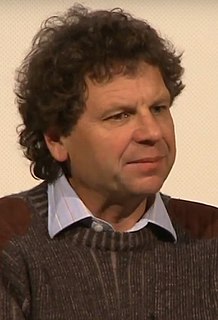A Quote by Chris Cain
I think the more people you add on stage, the more locked it things become. Whereas fewer members on stage gets the audience to notice any small idiosyncrasy or unique moment that one of the three people onstage is having. It also means that mistakes are accentuated, but to good affect generally if you are that type of band.
Related Quotes
Normally classical music is set up so you have professionals on a stage and a bunch of audience - it's us versus them. You spend your entire time as an audience member looking at the back of the conductor so you're already aware of a certain kind of hierarchy when you are there: there are people who can do it, who are on stage, and you aren't on stage so you can't do it. There's also a conductor who is telling the people who are onstage exactly what to do and when to do it and so you know that person is more important than the people on stage.
Not only are we not using any programmed loops or computers onstage, we're also improvising with our instruments. We're playing our instruments probably more so than most people that I see play their instruments. I think we all sort of strive for that - we all want magical things to happen onstage. We don't say "mistakes" in this band, we call them "highlights."
I'm not an angry person, just very disappointed and contemptuous of my fellow humans' choices - and on stage those feelings sometimes are exaggerated for a theatric stage - you're on a stage you have an audience of 2500 or 3000 people: you need to project the feelings, the emotions it's heightened, and people mistake it for a personal anger but it's more dissatisfaction, disappointment and contempt for these things we've settled for.
When you're onstage, it's important to try and feel some type of therapy in getting the material out, because then you don't leave the stage so tired. If you're onstage and you're doing the same routine over and over, then it gets monotonous. You want to be able to try to get to the truth constantly, and I think the more you do that, the easier it is.
That's the thing about stage: It's something you can't find anywhere else. It's a two-and-a-half, three-hour experience, and it's a real relationship. You're sending out energy from the stage, but the audience is giving you back so much also, so that's also lifting you and pushing you forward as you're performing and giving you so much energy. You can't find it anywhere else, and that's why people get addicted to being on stage, and when they're not on stage are kind of looking for that and constantly searching for it.
It was my dream for years... to train. Dominic [Cooper] went and he's doing alright. But some people don't go and do brilliantly. Although I think there are things I missed from not having trained. I think I'd be more confident on stage had I gone because I think it means you're equipped with better vocal training and things like that.
What this country needs is more people to inspire others with confidence, and fewer people to discourage any initiative in the right direction more to get into the thick of things, fewer to sit on the sidelines, merely finding fault more to point out what's right with the world, and fewer to keep harping on what's wrong with it and more who are interested in lighting candles, and fewer who blow them out.
Investing intelligently in those of us who are marginalised means fewer people in jail, fewer homeless, fewer unemployed, fewer of us who are forlorn and depressed, fewer people addicted to things that drag us down... Because as we invest in those that do it tough, we will see more Australians taking pride in themselves, having realisable dreams and aspirations and making their own positive contribution to the world's greatest nation.
